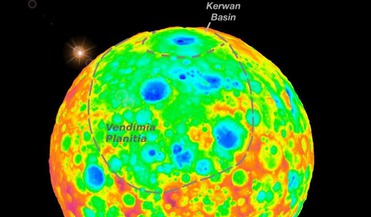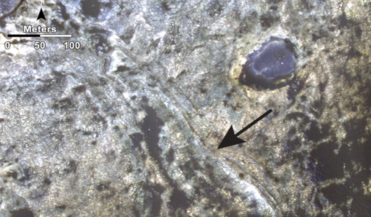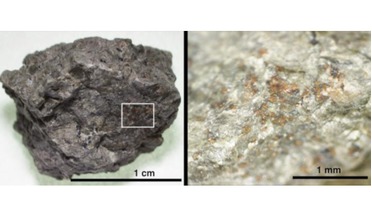 27 July 2016
Where did Ceres' craters go?
27 July 2016
Where did Ceres' craters go?
... of volcanism found on Earth, only at much lower temperatures, and instead of molten rock, "molten ice" – either water or brine – is the key constituent instead. "It's possible that there are layers or pockets of briny water in the crust of Ceres...
 07 October 2019
Salty rocks found by Curiosity supports theory that Mars once had vast lakes
07 October 2019
Salty rocks found by Curiosity supports theory that Mars once had vast lakes
... the salty leftovers from when water in the crater’s lakes evaporated leaving behind a pool of highly concentrated brines. As such, the presence of distinctively saline waters supports the hypothesis of Mars drying out during the Hesperian...
 29 April 2020
Scientists discover ancient nitrogen-bearing organic material in martian meteorite
29 April 2020
Scientists discover ancient nitrogen-bearing organic material in martian meteorite
... example from carbon-rich meteorites, comets and dust particles. Some of them may have dissolved in the brine and been trapped inside the carbonates,” explains Kobayashi. Alternatively, chemical reactions on early Mars may have...